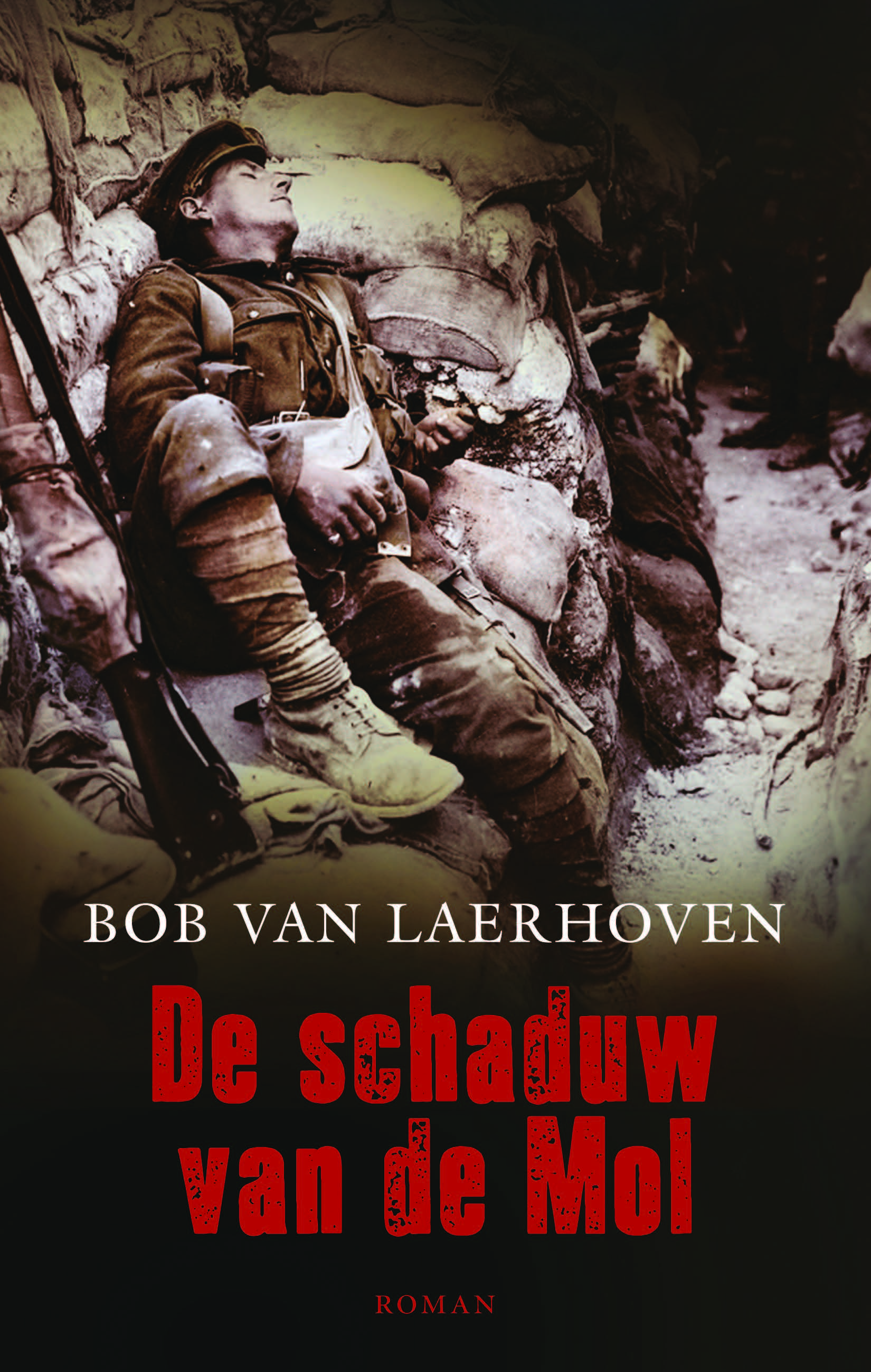
De schaduw van de Mol - The Shadow Of The Mole - 2015
1916, Bois de Bolante in the barren French region of Argonne. The war in the trenches is raging fiercer than ever. In a deserted mineshaft, French sappeurs discover an unconscious man. Very soon, the troops nickname him The Mole. The Mole claims he has lost his memory and he’s convinced that he’s dead. He asserts that an Other has taken his place. The military brass considers him a deserter. Front physician and psychiatrist-in-training Michel Denis suspects that the odd behavior of his patient is stemming from shellshock and tries to save him from the firing squad. But the mystery deepens when The Mole’ starts to write a story in écriture automatique that takes place in Vienna and Paris between 1875 and the start of WW1. Michel Denis, himself traumatized by the recent loss of an arm, becomes obsessed with The Mole and does everything he can to unravel the patient’s secret.
When, how, and why shifts reality into delusion? The First World War is a staggering background for this thrilling tableau of loss, frustration, anger, sexual secrets, and cautiously budding love.
Reviews
It sometimes seemed to me as if the author wanted to write about a lot of themes and now saw his chance to link all that together in one comprehensive story. That made it a pleasure for me to read. There are so many elements about which I can and will continue to think even after I have read the book. I felt a slight degree of frustration when I had read the last sentences(...) Isn't the book finished then? Yes, it is! It's just right. It gives enough to make it a complete story, and it omits enough to continue to stimulate one's own imagination (...) The atmosphere of the novel also reminded me from time to time of Patrick Süskind's mind-boggling novel "Perfume" (...) I also felt a connection with "A brilliant Flaw" of Arthur Japin(...) For readers who are (...) interested in reading something different, this novel is definitely a must-have (https://dobbinga.wordpress.com/2015/05/13/wie-is-de-mol/).
What a story! After reading the last pages, my first thought was: 'I don't know where to start my review!' I had to re-read and complete my notes first. Bob van Laerhoven's "The Shadow Of The Mole" is a very exciting literary novel. It was a wonderful journey of discovery.... I truly enjoyed reading this book! (Mieke Schepens - http://graaggelezen.blogspot.nl/2015/05/de-schaduw-van-de-mol-van-bob-van.html)
"The Shadow of the Mole" is a beautiful novel with different themes. The misery of trench warfare, trauma processing, shellshock, a hint of schizophrenia, and also a little romance. For me, the novel is a total package that appeals, fascinates, and intrigues! A book that you can't put away because you want to know what's going on. A novel that won't let you of the hook when you've finished it, because not everything has been said. It keeps on triggering the reader.
Conclusion: a total novel that deals with fascinating themes and continues to resonate for a long time... (Wie schrijft, die blijft - http://wieschrijftblijft.com/de-schaduw-van-de-mol/)
The Flemish writer Bob Van Laerhoven writes in a very fascinating and compelling way about a psychiatric investigation during WW1(...)The book offers a superb insight into the horrors of war and the trail of human suffering that results from it. (Jan Timmermans - NBD Biblion)
Van Laerhoven likes to write about history, madness, violence, and passion. "The Shadow Of The Mole" is an excellent example of his craft (...) a very ambitious novel... (Check Magazine)
The Flemish author Bob van Laerhoven's latest book is a remarkable and intriguing novel. (...) Nothing in this novel is as it seems. Van Laerhoven intertwines the stories of various people and shows their common aspects without revealing their true meaning; it is up to the reader to interpret and guess the nature of the secret that the characters carry with them. When, in the end, the identity of the Mole and his motives become known, the mystery is not yet solved. You will still have a lot of unanswered questions. You may not expect a "solution" like in a detective story, but Van Laerhoven does lift a tip of the veil. The story is too layered to arrive at an unequivocal conclusion. The author's great literacy gives a bonus to the novel: he presents Breuer, the Viennese physician who was Freud's predecessor, with his famous patient Anna O; he has a whore quoting Apollinaire; he quotes Gogol; and so on....All his references to literature and history that I love so much are all clues to getting closer to the deciphering of the book. (...) I love books in which (...) I love books in which you have to try to work your way through the chaos with clues as stepping stones, where everything is a symbol for something else, where every time you come up with new insights and about which you can keep pondering. "The shadow of the mole" is one of them. (Hettie Marzak- The Sword Magazine -www.theSwordMagazine.nl)
It's been a couple of weeks since I read "The Shadow of the Mole," but up until now I've never gotten the review as I wanted it to be. Not that I didn't like the book - on the contrary - but what on earth should I tell you about it? That I wanted to start reading it again immediately after turning the last page? Not only because I loved it so much, but also to better understand the story; to discover the next layer of it. That I was completely confused and couldn't get the book out of my head? (...) What I would really like to tell you about this intriguing book is that it's one big - forgive me the language - mindfuck. After a few chapters, you start to doubt your mental health and your definition of "normal." Is normal as normal as we think it is? Is that what we consider to be reality really real?
"The Shadow Of The Mole" raises more questions than are finally answered. At the end of the book, I was left with a lot of questions, and for days I was still trying to unravel the secrets of the main characters. I can tell you that it took a lot of guesswork to assemble all the pieces of the puzzle (....) This combination creates an almost constant sinister atmosphere that stays with the reader for a long time. With "The Shadow Of The Mole," Bob Van Laerhoven has written an intelligent, multi-layered book. I can imagine that not every reader will be a fan of this remarkable book, but believe me, if it grabs you, it won't let go! (https://www.bloglovin.com/blogs/boekboetiek-12558765/recensie-de-schaduw-van-de-mol-bob-van-laerhoven-4102706065)
Varied, intelligent, credible, atmospheric, and profoundly human (...) A very exciting and compelling book that we enjoyed right up to the last page. An image of WW1 in a lively way, a story that, almost unnoticed, carries you so deeply into that period...An intelligent novel with a structure of the best kind. (https://www.bruna.nl/boeken/de-schaduw-van-de-mol-9789089243102)

